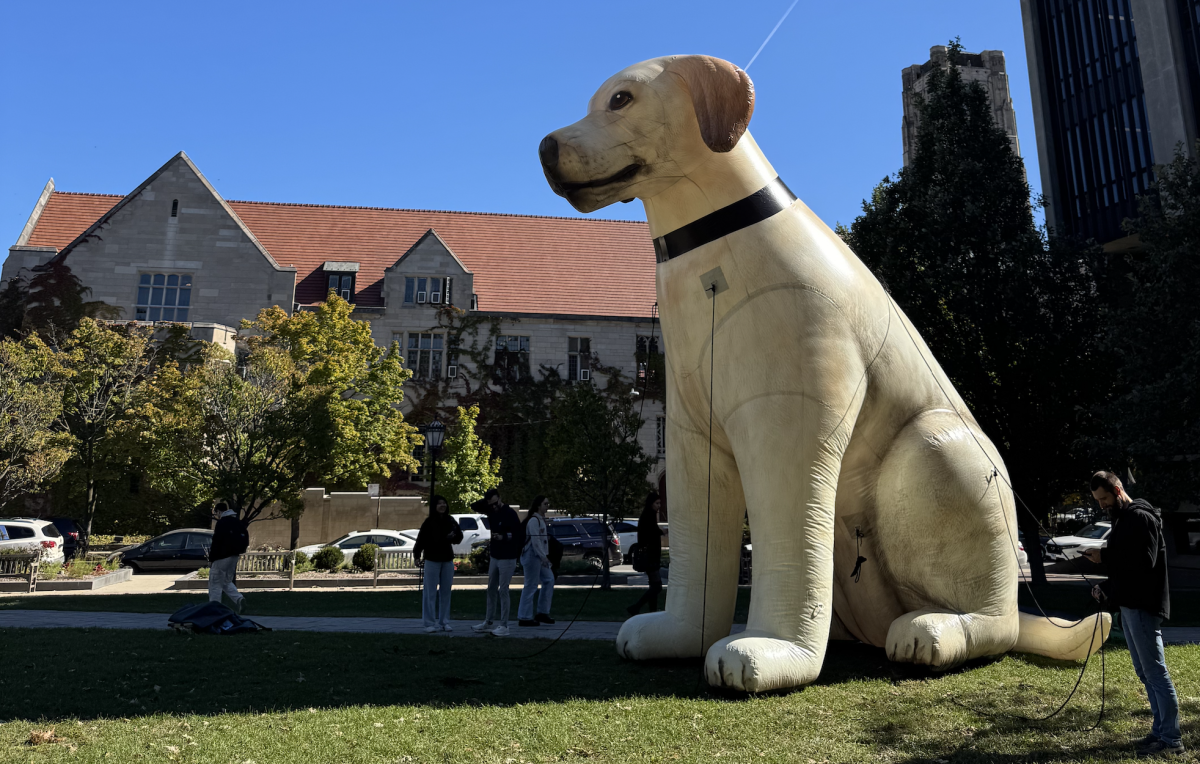On October 17, a 30-foot inflatable dog appeared for just one day on the University’s main quad, accompanied by a petting pen of puppies from a local animal shelter. The installation advertised the NOMO: No Missing Out app, which launched its two-week no social media challenge, “Less Social Media, More Real Life,” on October 20.
Saieh Family Professor of Economics Leonardo Bursztyn, the app’s developer, explained in an interview with the Maroon that launching NOMO’s pilot on campus is an attempt to address the mental health of the University community.
“It’s an opportunity to help students, especially first-years just starting, to spend more time connecting with each other in real life, because students spend four or five hours a day on TikTok and Instagram,” he said. “Those are hours that could be spent on really connecting, having real, meaningful connections and interactions in real life.”
The app challenges users to reduce their social media use to less than one hour per day for two weeks. Users who succeed have the chance to win prizes, including two free Starbucks drinks or entry into a raffle for tickets to Billie Eilish’s sold-out Chicago show.
For each person who completes the challenge, NOMO will also donate money to local animal shelters and climate change organizations, which is what inspired the inflatable dog advertisement. By encouraging reduced social media use, NOMO aims to address mental health struggles among teenagers and young adults.
The app also provides a schedule of on-campus activities that are available for students to take advantage of. Bursztyn explains that this provides students the opportunity to form meaningful connections offline.
Additionally, NOMO is a way to help improve academic performance on college campuses. “Digital media, like cell phones, specifically, really affect test scores and education,” he said. By removing digital distractions, NOMO hopes to help students focus and perform better in their academic work.
The creation of NOMO was inspired by Bursztyn’s research on “social media traps.” According to his work, a social media trap occurs when consumers’ experience with a platform is largely negative but quitting the platform would lead to even greater drawbacks.
His research showed that young adults, despite using social media daily, often wished these platforms didn’t exist. “The average student needs to be paid $59 to deactivate TikTok for four weeks but is willing to pay $28 to remove TikTok from their campus for four weeks,” he said.
Beyond NOMO, Bursztyn serves as the founder and director of the Normal Lab at UChicago and the co-director of the Becker Friedman Institute Political Economics Initiative. His research focuses on how social pressure and norms shape individual decisions. He studies these influences in areas like education, labor markets, and politics across both developing and developed countries.
Currently in its pilot phase, NOMO is available only to UChicago students. The team behind NOMO aims to expand the app to campuses across the country by December 2024.









Kay / Oct 25, 2024 at 6:46 pm
“University uses 30 foot dog to promote mental health app for students on quad that does not allow students to bring real dogs to campus any more per University policy”
Yup, sounds about right.